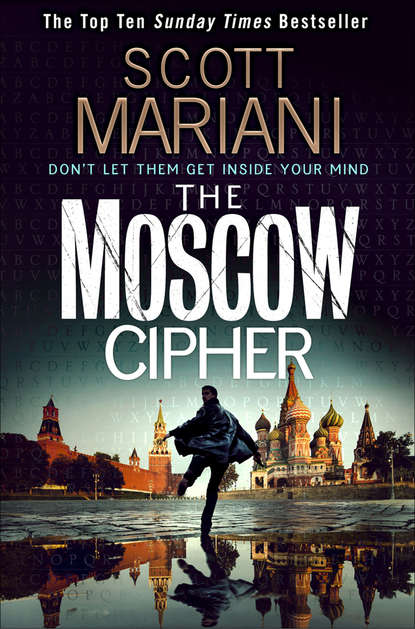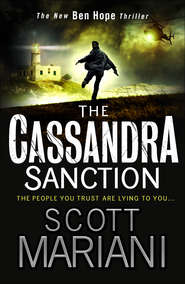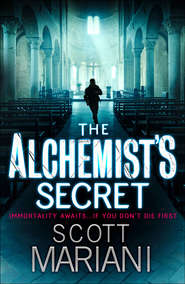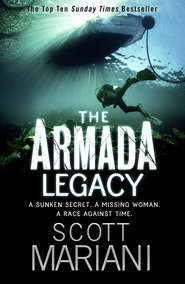По всем вопросам обращайтесь на: info@litportal.ru
(©) 2003-2024.
✖
The Moscow Cipher
Автор
Год написания книги
2019
Настройки чтения
Размер шрифта
Высота строк
Поля
Chapter 37 (#litres_trial_promo)
Chapter 38 (#litres_trial_promo)
Chapter 39 (#litres_trial_promo)
Chapter 40 (#litres_trial_promo)
Chapter 41 (#litres_trial_promo)
Chapter 42 (#litres_trial_promo)
Chapter 43 (#litres_trial_promo)
Chapter 44 (#litres_trial_promo)
Chapter 45 (#litres_trial_promo)
Chapter 46 (#litres_trial_promo)
Chapter 47 (#litres_trial_promo)
Chapter 48 (#litres_trial_promo)
Chapter 49 (#litres_trial_promo)
Chapter 50 (#litres_trial_promo)
Chapter 51 (#litres_trial_promo)
Chapter 52 (#litres_trial_promo)
Chapter 53 (#litres_trial_promo)
Chapter 54 (#litres_trial_promo)
Chapter 55 (#litres_trial_promo)
Chapter 56 (#litres_trial_promo)
Chapter 57 (#litres_trial_promo)
Chapter 58 (#litres_trial_promo)
Chapter 59 (#litres_trial_promo)
Chapter 60 (#litres_trial_promo)
Keep Reading… (#litres_trial_promo)
About the Author (#litres_trial_promo)
By the Same Author: (#litres_trial_promo)
About the Publisher (#litres_trial_promo)
PROLOGUE (#ue105cd42-113a-5e86-a4b2-f124c0f01acf)
The city was Moscow and the date was February 10th 1957. It was to be the last night in Leo Ingram’s life, although he didn’t yet know it.
The bitter cold day was turning to a frigid evening as the deserted streets darkened, urging Ingram to turn up the collar of his heavy greatcoat and walk faster along the slippery pavement. His shoes were sodden from trudging through the dirty slush. The whistling wind carried flurries of snow that threatened to re-cover everything in white.
Ingram detested the unrelenting cold, as he detested the palpable fear and oppression that gripped this city. He could see it in the eyes of the people everywhere he went; could almost feel it oozing from the grey, dirty, ice-rimed streets themselves; and the same fear was pulsing deep inside his own heart that night as he carried out his mission.
Leo Ingram was his real name, as opposed to the identity shown on the forged papers he was carrying. His spoken and written Russian were easily good enough to pass for a native, as long as he didn’t get into protracted conversation with any of the locals, something he had studiously avoided since being smuggled into the USSR five weeks earlier. His cover had been carefully set up. For the last five weeks, as far as anyone was concerned, he had been Pyotr Kozlov, self-employed piano tuner. Had he been required to actually tune a piano as proof of his false identity, he could have done so, as that had been his profession before the war.
Quite how a mild-mannered, cultivated and peace-loving gentleman like Leonard Ingram could be transformed into a highly decorated British Army captain and then, post-1945, into a special agent of the Secret Intelligence Service: that was a testament to the deep, dark impact that terrible war had had on the lives of everyone it had touched.
Ingram’s mission in Moscow was nearly complete. He had been planted here to play a relatively brief role, but one that was key to the success of the operation. If all went well tonight, the fiveweeks of perpetual nail-biting tension, of constantly looking over his shoulder, half-expecting to see the KGB thugs coming for him at any moment, would be over and he would begin the journey home. Not that getting out of the Soviet Union would be an easy matter.
If all didn’t go well … Ingram closed his mind to that dreadful possibility.
The package thrust deep inside one pocket of his greatcoat was the first thing his plan required him to offload that night, before moving to the second phase. The package was innocuous enough at first glance, just an ordinary tobacco tin imprinted with Cyrillic lettering, identical to millions of others carried by millions of men across the USSR. But what that little round tin contained could not have been more explosive if it had been packed full of super-concentrated TNT. If they caught him with it, all was lost. Not just his own life, but all the efforts and risks taken by others in order to obtain the extremely precious and hard-won information inside.
As Ingram rounded an icy corner of the dark, empty street and a fresh blast of bone-chilling wind slapped him in the face and made his eyes water, the warehouses came into view. A mile’s walk from his rented digs, this industrialised zone of the city was even more dismal and rundown than the rest of Moscow. Most of the ancient pre-revolutionary buildings were semi-derelict and abandoned behind rickety fences nobody guarded. All the same, he was cautious. The failing bulb of a street light flickered on, off, on, off, throwing long shadows that he watched carefully in case they might conceal enemies with guns.
Satisfied he was alone, Ingram approached the fence and made his way along the snow-rimed wire mesh to the hole, large enough for a man of his slender build to slip through easily, he’d cut three nights earlier.
The warehouse was an old meat packing plant that hadn’t been used for many years, its doors rotted off their hinges. Ingram stepped over the half-eaten body of a frozen rat and moved into the darkness of the building. The hiding place was very specific. The package would remain there only a day or so before, if all went according to plan, his contact would collect it. It had been decided back at the start of the mission that a dead drop of this sort was a safer, more prudent way for the package to change hands. Ingram would have preferred to deliver it straight to his contact, but these were not his decisions to make.
The package carefully hidden, Ingram slipped unseen from the warehouse and continued on his way through the cold darkness. Phase two of the plan was the rendezvous with his colleague, a man he had never met and would never meet again after tonight. A small waterproof envelope in Ingram’s pocket contained a slip of paper on which were written four lines of code: an enciphered message that, among other information, gave precise directions to the location of the hidden package. Once the envelope was passed on, Ingram would walk away relieved of a tremendous burden. His part in the mission would effectively be complete as his contact decoded the directions using a special key known only to a select few, then retrieved the package and whisked it away to East Berlin, where others in their organisation would be anxiously waiting to take possession.
When the package finally reached the safety of London and its contents were analysed, it would cause a sensation. Careers would be made out of this, though the men and women who’d risked their lives to obtain the information would likely get little credit.
Ingram walked on through the half-deserted streets, checking his wristwatch and his bearings and glancing behind him now and then to ensure he wasn’t being followed. A police car hissed by, tyres churning brown slush on the road, and made his heart race for a moment before it passed on into the night without so much as slowing down to check him out.
His anxiety was peaking as he walked on. His meeting with his contact, however brief, would be the moment of maximum danger for both of them; when they would be at their most vulnerable if either of them had fallen under suspicion. To be caught together was their worst nightmare. ‘It’s almost over,’ he kept telling himself. ‘You’ll soon be home free.’
As Ingram crossed a sidestreet, a large figure of a man in a long coat and a brimmed hat appeared from nowhere and stepped towards him. ‘Good evening,’ the man said in accented English. He was smiling. His right hand was in his pocket, clutching a hidden weapon. And he was most certainly not the man Ingram was supposed to meet.
KGB. The acronym stood for Komitet Gosudarstvennoy Bezopasnosti, the Committee for State Security. A name that struck terror into the hearts of those who opposed the Soviet regime, as well as the Russian citizens it oppressed as virtual captives in their own homeland. The KGB had been created only three years earlier and already forged a fearsome reputation as a direct descendant of the dreaded Cheka secret police of the olden days. Its agents were as ruthless as they were efficient.
Ingram’s stomach twisted as he realised they were onto him. He bolted diagonally away across the icy street, then skidded and almost fell as a second figure appeared around the corner up ahead, cutting off his escape. The second agent wasn’t smiling and he had drawn his service automatic.
Had someone betrayed him? Had the KGB already caught his contact and made him talk? Had a mole inside his own agency given him away? Ingram didn’t have time to ask those questions as he sprinted off in the opposite direction with the two agents in pursuit.
A shot cracked out. Splinters of brickwork stung Ingram’s leg as he darted around a corner. He knew that the KGB would shoot to wound, not to kill. He also knew what kind of horrific tortures they would use to force information from him. He would give them nothing. He and his fellow agents had all been sternly lectured on the risks associated with getting caught. Like his colleagues, Ingram carried hidden in the heel of one shoe a small glass vial containing a cyanide pill, to be swallowed in the event of imminent capture. The death it offered was by no means a pleasant one – but it was, he had been assured, far quicker and kinder than the treatment a spy would receive at the hands of his or her captors.
He sprinted along a cobbled alleyway, vaulted a railing and almost broke his neck hurtling down a long flight of icy steps. A sharp right turn, then a left, then another right; and now Ingram was quite lost in the maze of dark narrow streets, but all that mattered was getting away from his pursuers. Escape was his only hope. Ingram had killed over a dozen enemy soldiers in the war and was quite proficient at armed combat, but the Secret Intelligence Service didn’t issue weapons to undercover agents posing as innocent piano tuners. The couple of tuning forks he carried about with him wouldn’t be much use.











